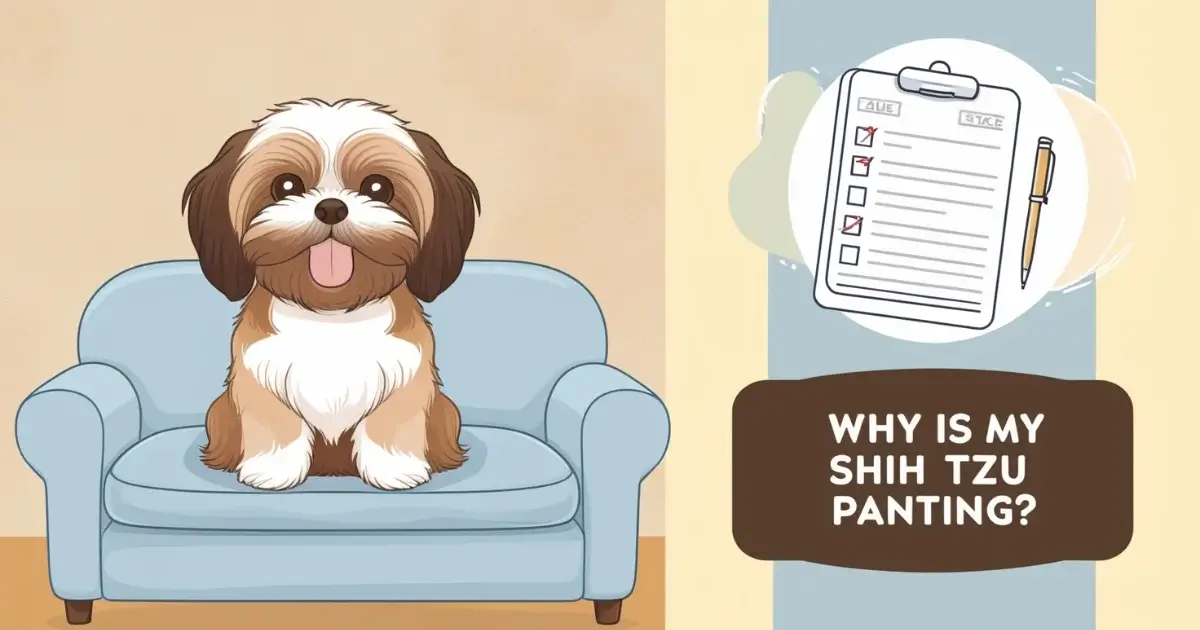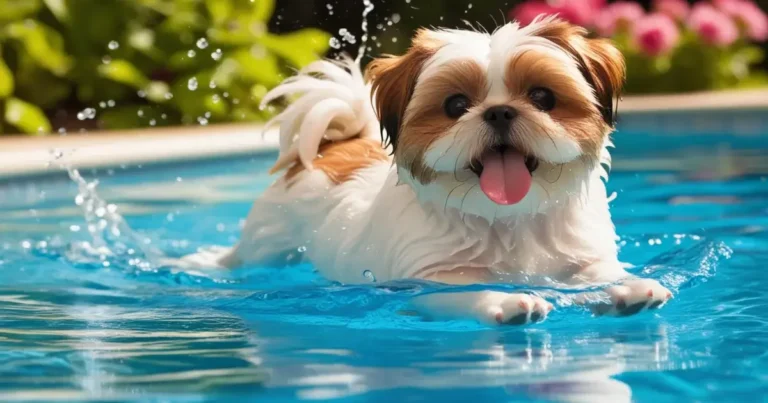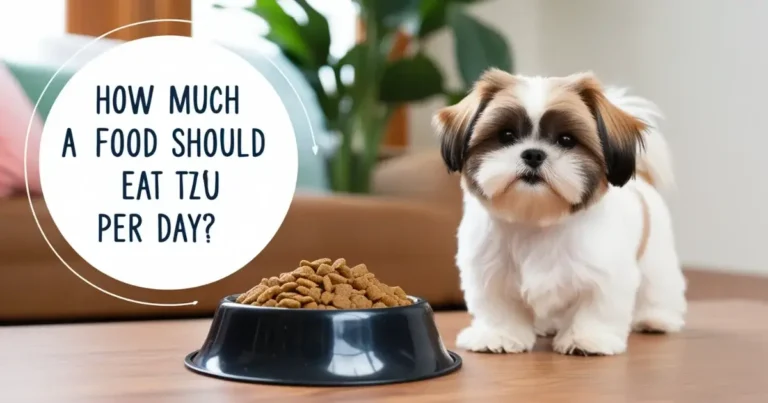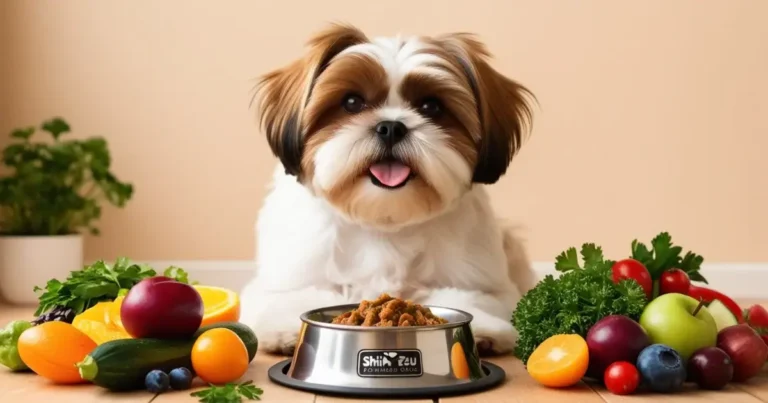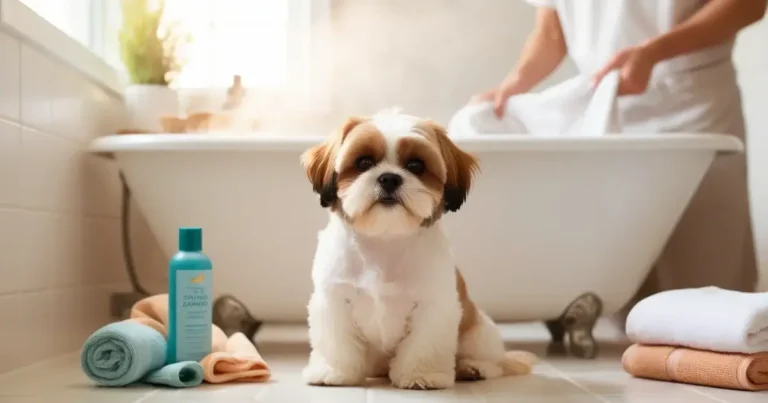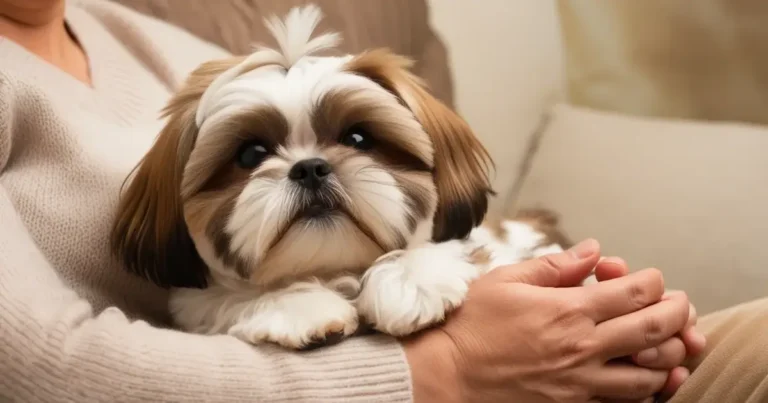Why is My Shih Tzu Panting? Understanding Causes & Solutions
Shih Tzus are lovable dogs known for their playful spirit and flat faces. But if you’ve noticed your Shih Tzu panting a lot, it’s natural to worry. Why is my Shih Tzu panting? Panting can be normal, but it can also point to other issues. In this guide, we’ll break down the common reasons for panting in Shih Tzus, when to worry, and what to do to keep them healthy and happy.
Table of Contents
Why is My Shih Tzu Panting So Much?
Panting is a normal way for dogs to cool down since they don’t sweat like humans. But why is my Shih Tzu panting so much? Here are a few reasons that could explain it:
- Cooling Off: Shih Tzus pant to cool their bodies, especially after exercise or on warm days.
- Excitement: When Shih Tzus are happy or excited, they may pant more than usual.
- Anxiety or Stress: Loud noises, new environments, or even separation can cause your Shih Tzu to pant a lot due to stress.
While panting can be normal, it’s important to watch for signs that it might be something more serious.
Why is My Shih Tzu Panting and Shaking?
If your Shih Tzu is panting and shaking, it could be due to stress, fear, or even pain. Shih Tzus often show signs of stress or anxiety through panting and shaking. Some common triggers include:
- Loud Noises: Thunderstorms or fireworks can make Shih Tzus anxious, causing them to pant and shake.
- New Environments: Going to the vet or meeting new people can stress them out.
- Pain: Panting and shaking together might also mean your Shih Tzu is in pain. If they show other signs of discomfort, like limping, you might need to visit the vet.
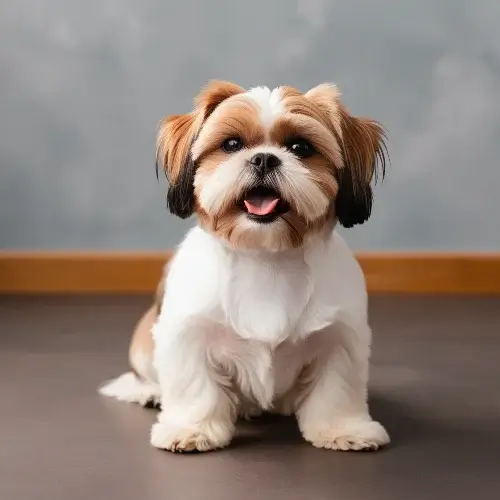
When your Shih Tzu is shaking and panting, try to comfort them and help them feel secure.
Why is My Shih Tzu Panting at Night?
Nighttime panting can seem strange, especially when your dog isn’t active. Why is my Shih Tzu panting at night? Here are a few possibilities:
- Excitement Before Bed: If they’ve been playing or are overly excited before bedtime, it may carry over into the night.
- Night Anxiety: Some Shih Tzus experience nighttime anxiety, which can lead to panting.
- Discomfort from the Room Temperature: If it’s too warm, they might pant to try and cool down.
Keeping a calming bedtime routine and a comfortable room temperature can help reduce nighttime panting.
Why is My Shih Tzu Panting So Hard? Could It Be Heart or Respiratory Issues?
Heavy, hard panting can sometimes be a sign of a health issue. Shih Tzus can be prone to heart and respiratory problems. So if you notice your Shih Tzu panting so hard, you might want to look out for other symptoms. Common conditions include:
- Heart Disease: Panting is sometimes one of the first signs. Heart issues can also cause coughing or shortness of breath.
- Lung Disease: Respiratory problems can cause panting and make it harder for them to breathe. Symptoms may include noisy breathing or wheezing.
- Laryngeal Paralysis: A condition that affects the voice box, making it harder for dogs to breathe comfortably. If your dog’s panting seems forced or sounds unusual, it’s best to get it checked out.
If your Shih Tzu is panting excessively, especially with other signs like coughing or trouble breathing, see your vet.
Why is My Shih Tzu Panting a Lot in Hot Weather?
Shih Tzus, with their flat faces, have a hard time cooling down in hot weather. Why is my Shih Tzu panting a lot during summer? Panting is the body’s way of cooling down, but Shih Tzus can easily overheat. Signs of overheating include:
- Excessive Panting: If they can’t cool down, they’ll pant more than usual.
- Disorientation: Heat stroke can make dogs feel dizzy or lethargic.
- Dark Red or Bluish Gums: This is a severe sign of heat stress.
If you suspect heatstroke, move them to a cool area and give them water. Call your vet right away if symptoms persist.
Why is My Shih Tzu Panting After Eating? Could It Be Related to Medications?
Panting after meals might seem odd. Why is my Shih Tzu panting after eating? Here are some possible reasons:
- Fullness or Discomfort: Sometimes, a big meal or digestive issues can cause panting.
- Medication Side Effects: If your Shih Tzu is on medication, panting could be a side effect. Steroids, for example, are known to cause increased panting.
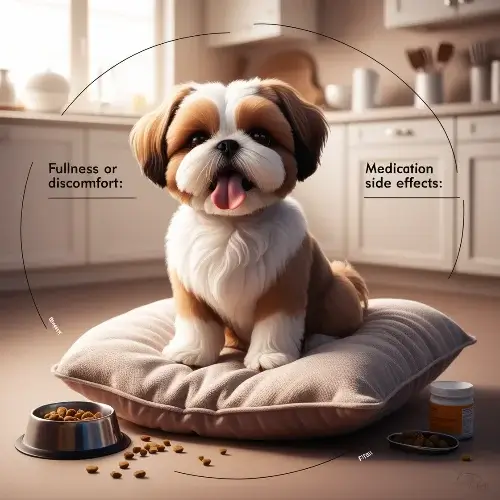
If you notice your Shih Tzu panting excessively after eating and they’re on medication, consult your vet about possible side effects.
Could Cushing’s Disease Be Why My Shih Tzu is Panting So Much?
Cushing’s disease is a condition where the body produces too much cortisol. It often causes excessive panting. Other signs of Cushing’s include increased thirst, hunger, and a pot-bellied appearance. If your Shih Tzu is panting excessively, showing these signs, and they’re middle-aged or older, ask your vet about Cushing’s disease.
Early treatment can make a big difference, so don’t hesitate to have your Shih Tzu checked.
What to Do if Your Shih Tzu’s Panting Seems Unusual
Sometimes panting is just part of being a Shih Tzu. But if your Shih Tzu is shivering and panting or shows other signs of discomfort, it might be time to reach out to your vet. Signs that panting is a problem include:
- Panting combined with lethargy or dizziness
- Trouble breathing
- Persistent panting without a clear cause
When in doubt, a quick checkup can offer peace of mind and keep your Shih Tzu feeling their best.
Conclusion
Knowing the answer to why is my Shih Tzu panting can help you keep them comfortable and safe. Whether it’s a hot day, excitement, or something more serious, understanding the cause helps you take action. And remember—when in doubt, don’t hesitate to reach out to your vet.
FAQs
What room temperature is safe to prevent excessive panting in Shih Tzus?
Shih Tzus are prone to overheating. Keeping the room between 68–75°F is ideal. Make sure they have access to fresh water and a cool resting spot, especially during warmer months.
Can weight gain cause my Shih Tzu to pant more often?
Shih Tzus are prone to overheating. Keeping the room between 68–75°F is ideal. Make sure they have access to fresh water and a cool resting spot, especially during warmer months.
Should I be concerned if my Shih Tzu pants after eating or drinking?
Panting after meals may sometimes happen if your Shih Tzu has eaten too quickly or is feeling discomfort. Offering smaller meals can help. However, consult your vet if this becomes a regular occurrence.
Are certain foods known to increase panting in Shih Tzus?
Yes, overly fatty or heavy foods can cause bloating or indigestion, leading to panting. Stick to a balanced diet recommended by your vet to help avoid any potential digestive discomfort for your Shih Tzu.
